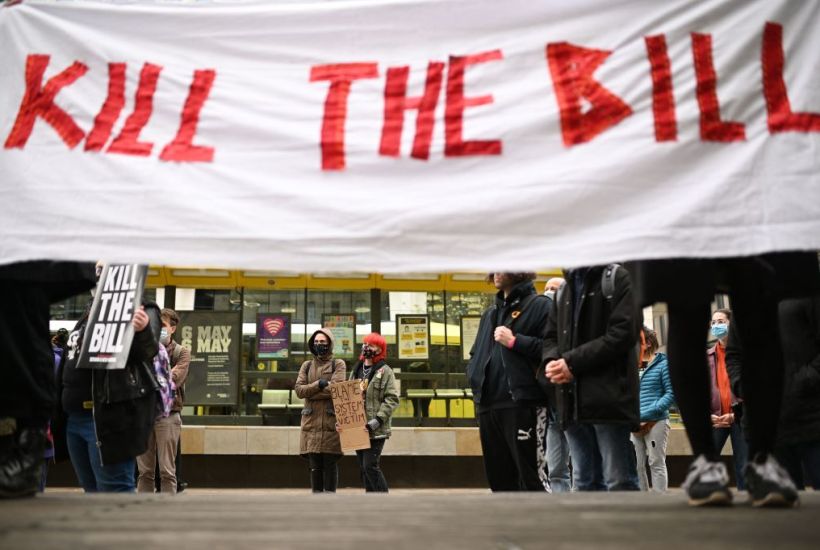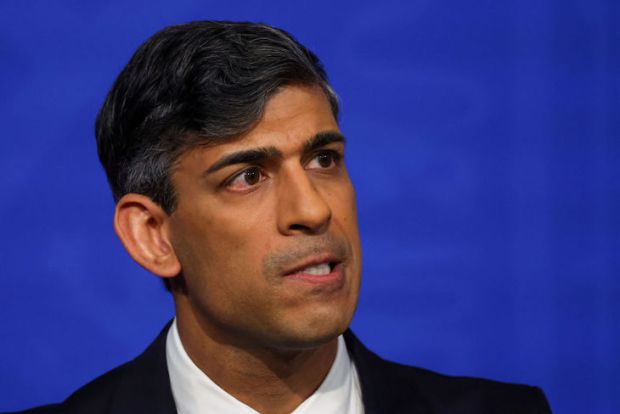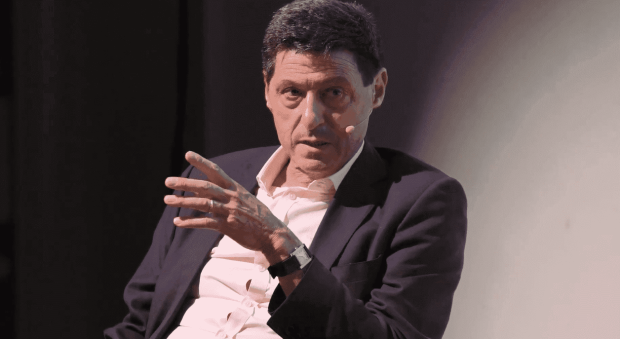Are the rights of protesters and the rights of all other citizens fairly balanced? Think back to the Extinction Rebellion protests of April 2019, when climate activists chose to ‘peacefully occupy the centres of power and shut them down’, as they put it, including the heart of London.
The protests, organised globally, were perhaps the most disruptive in history. A small number of people managed to stop hundreds of thousands more going about their daily lives. People could not get to work, see family and friends or go shopping, because the streets were blocked by an extensive series of roadblocks and other tactics. At one point, printing presses were blockaded, undermining the free press. There was a huge economic hit to the capital, as transport hubs were closed and commuting became almost impossible.
As a former senior officer in the Metropolitan Police, I felt for my former colleagues as they struggled to contain the chaos. The protestors were well organised and ingeniously disruptive. They climbed on to bamboo towers several metres above the road surface, making it very difficult to remove them without risking their safety. They attached themselves to buildings. Dozens would ‘go floppy’ in the middle of the road at the same time, making it difficult to arrest and carry them away. What is more, they were highly agile. Remove one group and end a five-mile tailback and the call would go out on social media. Replacements would soon arrive.
What were police to do? Was the legislation clear enough about their powers? And is it clear enough two years later when, for example, a one-man protest with an amplifier can stop hundreds of civil servants from getting on with their jobs in the heart of Whitehall? The Government thinks not, which is why the Police, Crime, Sentencing and Courts Bill is currently making its way through Parliament.
To me, despite the ‘Kill the Bill’ protests and challenges from civil liberties groups, the Bill contains welcome new measures. We must always be on guard against new laws that might limit our ability to assemble and peacefully protest; the right to continue doing so is vital to democracy (and enshrined in the European Convention on Human Rights, though it predates that in English law by centuries). However, as John Larkin, makes clear in a new paper for Policy Exchange, this Bill is certainly not some instrument of repression as its opponents suggest.
What it does do is recognise that the methods of protest are evolving and therefore so must policing tactics in response – and the legislation that backs them up. The Bill, for instance, will add a clause making ‘noise which may result in serious disruption to an organisation in the vicinity’ unlawful, if it causes serious unease in the affected party.
This has caused alarm among campaigners, but they overlook the good reasons, which Larkin makes clear, why in practice these clauses are likely to be interpreted compatibly with the ECHR and existing law. Protesters will not be silenced because of what they are saying but how they are going about it – we may see fewer Glastonbury Festival-style stages on Parliament Square, with a few hundred people causing severe disruption to thousands in the vicinity.
Similarly, there are complaints about the legislation giving greater scope to prosecute protesters for damage to property, serious annoyance or serious inconvenience – which could, in theory, lead to maximum sentences of ten years in prison. Once again, however, this overlooks existing legislation that would temper the application of severe sentencing.
As robust debate on this and other measures in the Bill continues, and MPs test ministers on this new legislation in Parliament, two principles should be upheld. The ability to assemble and protest peacefully must be protected as a fundamentally important right. The Bill achieves this.
Secondly, significantly more protection must be given to the rights of all other citizens to go about their daily lives without suffering disproportionate and severe levels of disruption. Protesters will often believe wholeheartedly that this disruption is justified for their particular cause; ultimately, the law must correct this misapprehension, for the benefit of us all.
<//>
Got something to add? Join the discussion and comment below.
Get 10 issues for just $10
Subscribe to The Spectator Australia today for the next 10 magazine issues, plus full online access, for just $10.




















Comments
Don't miss out
Join the conversation with other Spectator Australia readers. Subscribe to leave a comment.
SUBSCRIBEAlready a subscriber? Log in